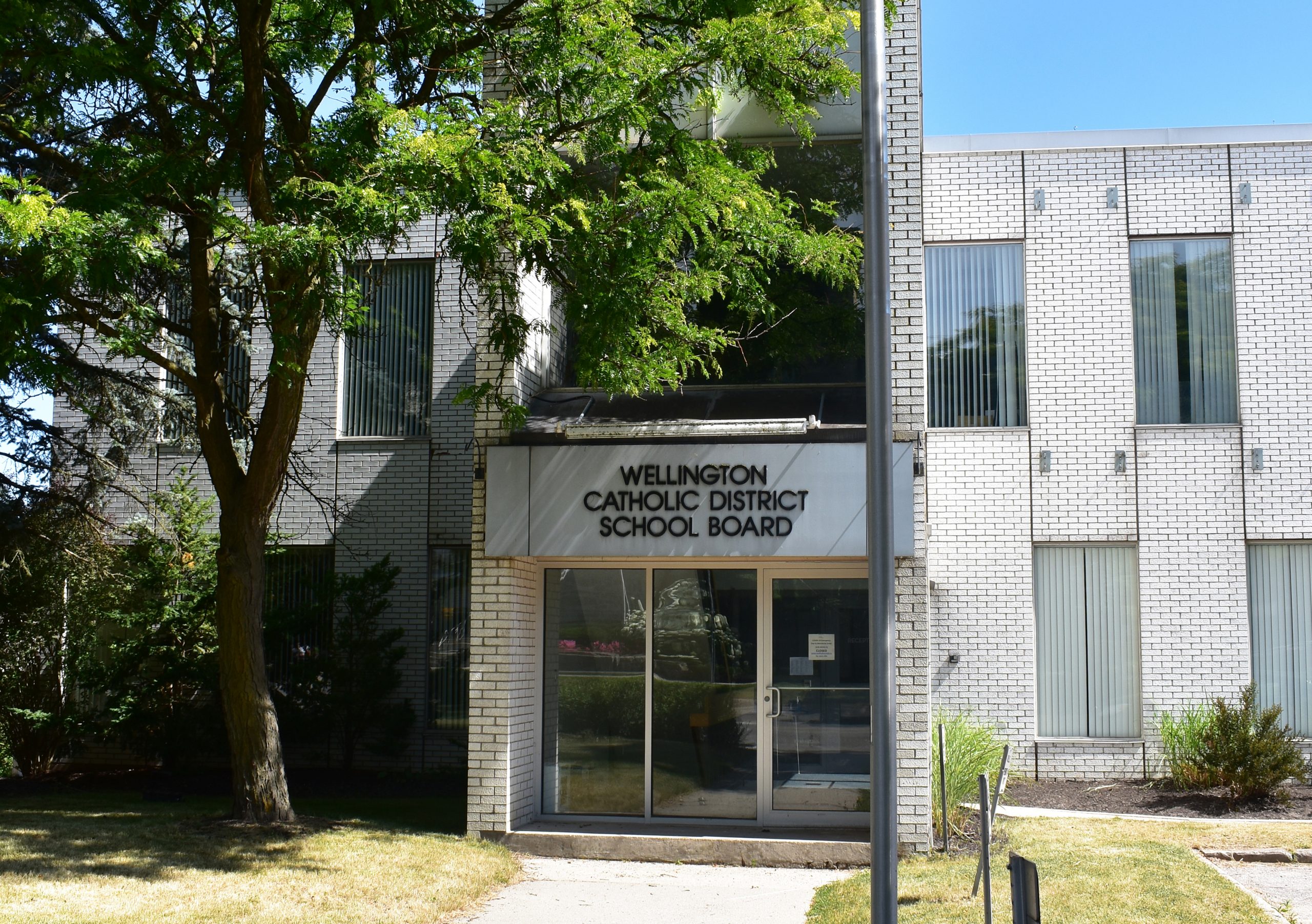GUELPH – Wellington Catholic District School Board (WCDSB) trustees are encouraging the board to rethink its approach to teaching as students undergo their second semester since the province introduced de-streaming.
In a May 1 board meeting, WCDSB staff provided trustees with an update on current board planning and supports with respect to the Ministry of Education’s de-streaming initiative.
“Decisions being made early on are having a significant impact on student outcomes,” secondary program coordinator Stacey Fraser told the board.
“Data showing that students enrolled in applied courses in Grade 9 are less likely to pursue post-secondary education when compared with students enrolled in academic level courses.”
The ministry announced in the fall that the Grade 9 math curriculum would be offered as a de-streamed format in schools as of the 2021-22 school year.
Outlining the reasons for de-streaming, Fraser said “it provides opportunities for equity and equitable outcomes for all students.
“It provides more time for families to make informed decisions on post-secondary pathways.”
Student support service coordinator Nadia Tonin said the board is currently reviewing student IEP’s across the system as the board moves towards de-streaming.
Think about impact
“It allows us the opportunity to have a look at various IEP’s across the board to have a look at who is actually being modified,” she explained.
“We really need to think about the impact that we have on the trajectories of our students, especially when we’re looking at beginning modifying their programs.”
Tonin noted the board is very early on the work but said they’re reviewing and making sure needs on the students IEP are based on relevant assessments, rather than old assessments that date back to junior kindergarten.
“We’re trying to encourage the teams to really look closely at those IEPs yearly, and to ensure that they reflect the student’s growth and changing needs at both levels at the elementary and the secondary level,” she explained.
Student support services coordinator Jeff Mawhinney said it’s about rethinking the way the board is going to deliver those courses moving forward.
“We don’t want to automatically modify students to these courses,” he said.
“We decided … that it’s best to look at accommodating those students and seeing how they do with this change and delivery of course, before jumping right into waves of modifications.”
Mawhinney said the board is reintroducing the learning for all document to all teachers to encourage a shift in the way many high school courses are taught where the focus is on getting to know the learners in the classroom through student profiles and surveys.
He said the board will also be looking at differentiated instruction and assessment to meet the needs of all learners, adding the board wants to avoid modifying courses too much so that the student doesn’t get their credit.
“One of the things we don’t want to see is students not getting their full range of credits with their first year because of de-streaming,” he said.
“I understand what the government’s trying to do,” trustee Marino Gazzola said.
“But when I hear different terms like differentiate, differentiated instruction, modifying courses, or IEPs, tiered interventions, you’re still streaming, you’re not de-streaming.
‘Still streaming’
“You may be changing the course and you may be given direction, but you’re still streaming the students.”
Fraser responded that with differentiated instruction, the board will be looking at the curriculum and finding a way to meet the needs of the learner.
This may include looking at not always having to do a paper assessment and “collecting evidence through different means through observations and conversations,” she explained.
“So I would disagree that differentiating instruction is a form of streaming, I would say that you still have your high expectations, and we offer support for the students to demonstrate their best way of learning.”
Trustee Sebastian Dal Bo voiced concerns over the transitions following Grade 9 into more specialized classes like physics, chemistry and biology.
“If you’re not ready for that, my worry and concern is really the stress on students with this,” he explained.
He added it’s a good initiative for the board to approach but that more guidance counsellors are needed to guide students through these challenges.
Mawhinney noted the curriculum at this point is staying the same for courses like English.
“It’s really about changing the way that we think about delivering the program in more of an attractive, more responsive way, rather than more or less prescriptive sort of university style teaching,” he explained.
“I think this boils down to the fact that this is a significant shift in our approach in educating our students,” trustee Andrew Finoro said.
For the new approach to work, there also needs to be a detailed plan for teachers in order to meet the needs of the students who will benefit from the de-streaming approach, he added.
Measure of success
“I think we have to really look at our measure of success,” Fraser responded. “And so depending on that measure we’ll determine if there’s success with the de-streaming or not.
“Students are feeling like they are being told you are an academic student, you are an applied student, and they want to be able to make that choice,” she added. “And they should make that choice.
“If they are too young to make it in Grade 8, then I think we need to change how we’re doing things in education.”




